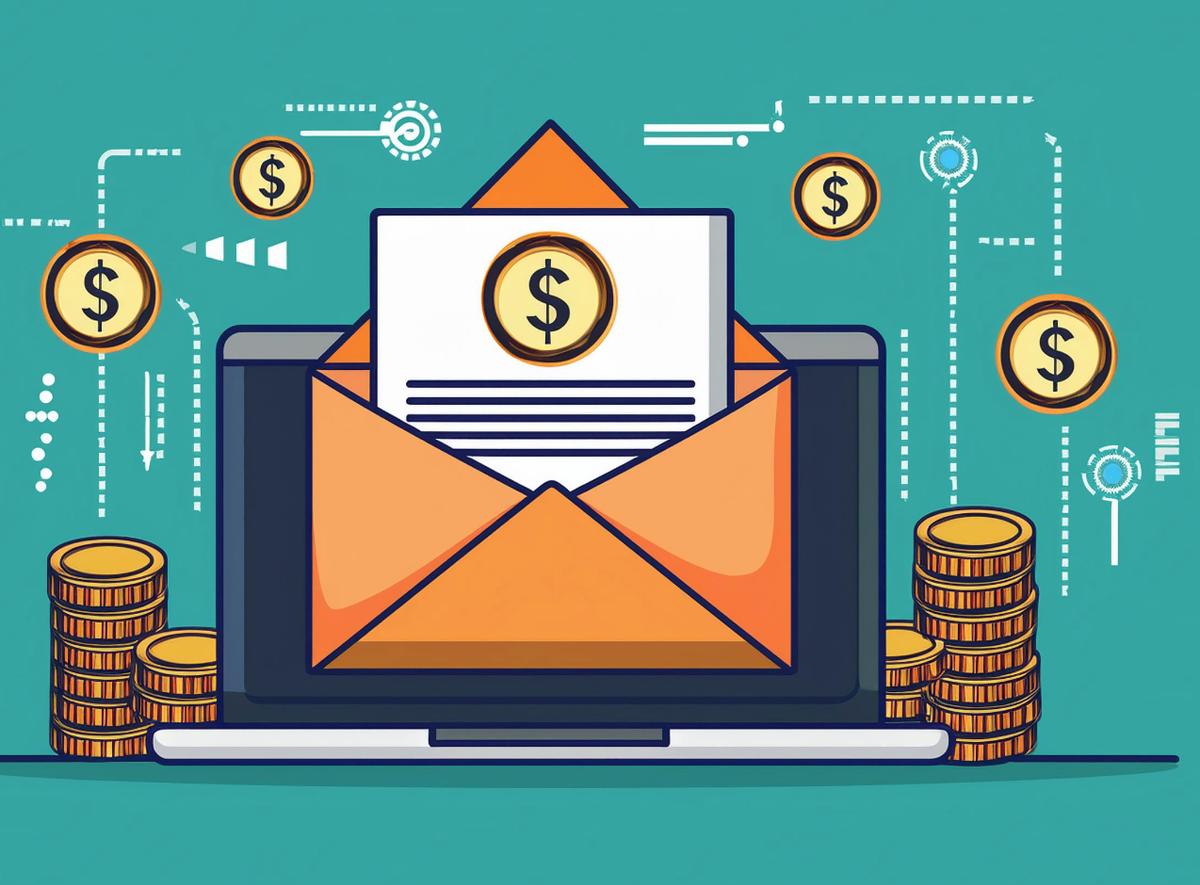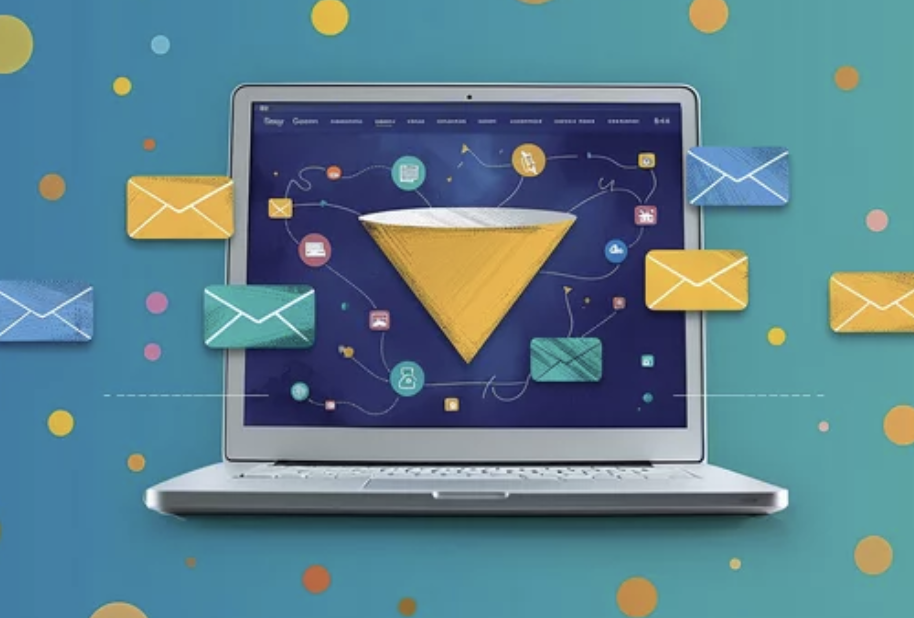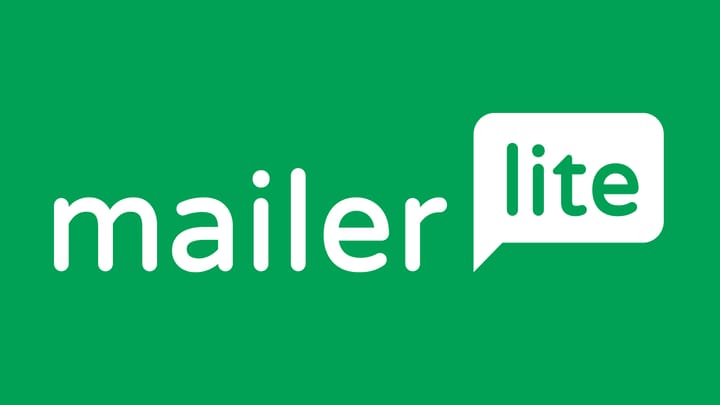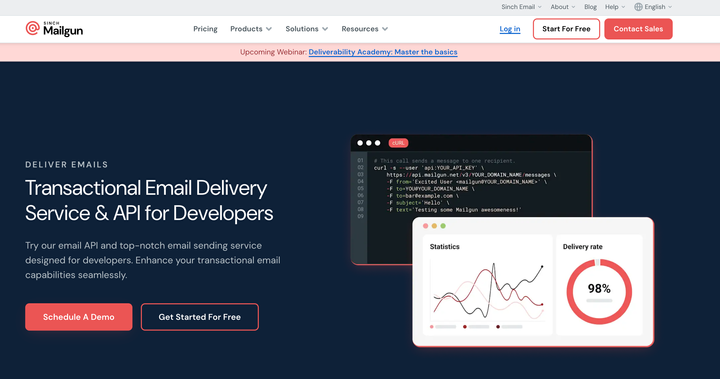Supercharge Your ROI: Essential Tools and Tactics for Email Marketing Automation
Who doesn’t want to focus on crafting effective campaigns that drive revenue? Despite the growing prominence of newer communication channels, email marketing continues to deliver outstanding returns and foster strong customer connections.

Who doesn’t want to focus on crafting effective campaigns that drive revenue?
Marketers are faced with a myriad of daily tasks, from building email lists to composing captivating email copy and timing their releases perfectly.
And despite the growing prominence of newer communication channels, email marketing continues to deliver outstanding returns and foster strong customer connections.
Currently, 56% of businesses employ marketing automation tools, with 40% of B2B companies planning to do the same. This email automation's cost-effectiveness, precision targeting, and influence on brand awareness, loyalty, and sales make it an indispensable strategy for companies of any scale.
By cutting costs, enhancing accuracy, and boosting productivity, automation solutions like Robotic Process Automation (RPA) and Artificial Intelligence (AI) provide quantifiable enhancements to Return on Investment (ROI). No matter the department—whether automating financial operations or refining workflows elsewhere—businesses can harness automation to drive growth and maximise profitability.
Let’s then take a look at why and how some businesses have already invested in email marketing automation and what you can do to save time and increase revenue.

The Benefits of Email Marketing Automation
Email marketing automation simplifies the process of staying in touch with your audience by sending out emails automatically based on specific triggers or schedules. Unlike transactional emails that respond to a user's actions (like making a purchase), automated emails run on their own—following set rules like dates, times, or other criteria.
When woven into your broader marketing strategy, automated emails help keep customers engaged with personalised touches, whether it's through onboarding series, newsletters, surveys, birthday messages, or payment reminders.
The benefits?
Automation not only enhances the user experience with scalable personalisation—leading to higher engagement, click-throughs, and conversions—but also frees up your time. With pre-scheduled emails, you can focus on more creative ways to connect with your audience, while actionable insights from analytics help you continuously fine-tune your approach.
It's a new smart way to build stronger relationships, nurture leads, and ensure lasting customer loyalty.
Essential Tools for Email Marketing Automation
A range of tools is essential to maximising the efficiency of email marketing automation efforts.
Generally, businesses face a choice between using a dedicated email automation tool or adopting a comprehensive omnichannel platform. While email-only tools are often more affordable, they can restrict engagement opportunities by confining interactions to a single channel.
For example, integrating push notifications, in-app messages, and SMS can significantly enhance user engagement by leveraging multiple interaction points tailored to specific needs.
Opting for an omnichannel platform at the outset may come with a higher initial investment but offers the flexibility to seamlessly synchronise user engagement across diverse communication mediums, ultimately saving time and resources on platform migrations in the future.
Below are curated lists of tools, categorised as either omnichannel platforms or email automation solutions:
Email Automation Platforms
Email automation platforms have transformed how businesses connect with their audiences. Tools like ActiveCampaign, GetResponse, and Mailchimp offer solid solutions that let companies easily design, schedule, and manage email campaigns. With features like customisable templates, A/B testing, and detailed analytics, these platforms help businesses continually refine their email marketing strategies.
Audience segmentation and behavioural targeting also make it easy to send personalised content that speaks directly to different subscriber groups, boosting engagement.
Plus, the availability of free plans makes it accessible for small businesses to get started and experiment without any upfront commitment. By using these email automation tools, businesses like yours can streamline their marketing efforts, build stronger customer relationships, and see better returns on investment.
Omnichannel Platforms
Omnichannel platforms are all about delivering a smooth, connected experience for customers, no matter where they interact with your brand—whether that's in-store, on your website, through a mobile app, on social media, or via email. By using this approach, businesses can keep their messaging and branding consistent, which helps build stronger customer relationships and boosts loyalty.
It’s not just about making the experience more cohesive for customers, though. Every interaction across these channels also generates valuable insights that businesses can use to fine-tune marketing efforts and offer a more personalised shopping experience tailored to individual needs
CRM Integration
CRM software integration helps businesses manage customer data more efficiently, improve communication, and streamline sales processes. Platforms like Salesforce, HubSpot, and Zoho centralise customer interactions, making it easier for companies to understand their customers' needs and address pain points. This leads to stronger relationships through personalised marketing, targeted outreach, and enhanced customer service.
CRMs also automate mundane tasks, giving sales teams more time to focus on high-priority activities that drive revenue. With these benefits, the global CRM market is expected to reach $49.5 billion by 2025, highlighting its importance in today’s business world.
Analytics and Reporting Tools
These analytics and reporting tools are key for measuring the success of marketing campaigns, as they track important metrics like impressions, click-through rates, conversions, bounce rates, and return on investment (ROI). By analysing these KPIs, businesses can see what's working and where improvements are needed. This data-driven approach helps fine-tune marketing strategies, ensuring that efforts are focused on areas that drive the most impact.
Beyond just tracking performance, these tools also reveal trends and customer behaviours, helping companies adapt to changing market demands. As technology evolves, analytics platforms are becoming more advanced, offering deeper insights that allow businesses to continually enhance their marketing initiatives and make more informed decisions. Aligning these efforts with agile development methodologies helps teams stay flexible, iterate quickly, and respond to data in real time, ultimately improving the effectiveness of each campaign.

Segmentation and Personalisation: Tactics for Success in Automation
Segmentation isn’t just about sorting customers into groups; it’s about truly understanding their unique behaviours and anticipating their future needs. By leveraging data analytics and machine learning, businesses can uncover hidden patterns that help predict what customers will want next.
Segmenting based on actions like purchase history, browsing habits, and engagement levels allows companies to respond proactively with tailored offers and communications.
Personalisation goes beyond just adding a name to an email—it’s about aligning every interaction with what the customer cares about. From product recommendations based on past preferences to offers tied to specific locations, personalisation creates a more relevant experience at every step. To do this effectively, a solid data infrastructure is crucial, enabling businesses to gather, analyse, and apply insights.
When segmentation and personalisation are done well, they transform generic interactions in automation into meaningful, custom experiences, driving higher customer satisfaction, loyalty, and conversion rates, or ROIs.
How SMTP Helps in Email Marketing Automation
What is SMTP (Simple Mail Transfer Protocol)?
SMTP, or Simple Mail Transfer Protocol, is a set of rules used for sending emails across networks. It plays a crucial role in the process of transmitting email messages between servers, functioning as the backbone of email communication. SMTP ensures that messages are correctly routed and delivered to the recipient's inbox.
SMTP's Role in Email Delivery
SMTP acts as the intermediary when an email is sent, guiding the message through the internet and ensuring it reaches its intended destination. It handles the critical task of transmitting emails between servers and works with other protocols to confirm successful delivery. By doing so, SMTP helps in maintaining the efficiency and accuracy of email communication.
Ensuring Deliverability and Avoiding Spam Folders
SMTP is pivotal in keeping emails out of spam folders and ensuring they land in recipients' inboxes. Through features like custom domain authentication and adherence to email standards, SMTP enhances sender credibility, which is essential for avoiding spam filters and improving deliverability rates.
Why SMTP Matters in Email Marketing Automation
Reliable Delivery
A reliable SMTP service guarantees that emails consistently reach recipients' inboxes, directly impacting open rates. Through error tracking and bounce management, SMTP enhances delivery reliability, thereby underpinning successful email marketing campaigns.
Custom Domain Authentication
SMTP provides the ability to authenticate domains, which builds trust and minimises the risk of emails being flagged as spam. This authentication helps maintain a positive sender reputation, which is crucial for marketers looking to ensure their communications are well-received.
Higher Email Throughput
SMTP supports sending a large volume of automated emails efficiently. It allows for higher throughput, meaning marketers can deliver substantial amounts of emails without experiencing bandwidth issues or delays, vital for large-scale campaigns.
Integration with Automation Tools
Many email marketing platforms integrate SMTP for seamless email delivery. This ensures efficient campaign execution by leveraging SMTP's solid infrastructure, which supports sophisticated features like automated workflows and trigger-based messaging.
Monitoring and Analytics
Advanced SMTP services like Maileroo offer detailed insights into how emails are delivered. By providing analytics on email deliverability, bounces, and engagement, SMTP helps marketers refine their strategies, ensuring that campaigns are continually optimised for better results.
Maileroo: How to Send Automated Emails via Maileroo’s API
Maileroo's API makes it easy to send automated emails, helping to streamline your email marketing efforts. By integrating Maileroo’s API into your marketing strategy, you can effortlessly automate campaigns tailored to user behaviour and preferences.
The API offers advanced features like scheduling, personalisation, and A/B testing, giving marketers the flexibility and control they need. Developers can find detailed documentation that walks them through the integration process, ensuring a smooth setup.
Wrap Up
Email marketing automation can save a significant amount of time and boost ROI by taking care of repetitive tasks, allowing marketers to focus on strategy and creativity. Using the right tools, like SMTP, is crucial for success, as it ensures reliable delivery and high throughput, forming the backbone of effective email campaigns. Embracing automation not only optimises your marketing efforts but also lays the groundwork for sustainable, long-term success in engaging audiences and driving conversions.
With reliable platforms like Maileroo, businesses can enhance their email marketing effectiveness and achieve their marketing goals.



